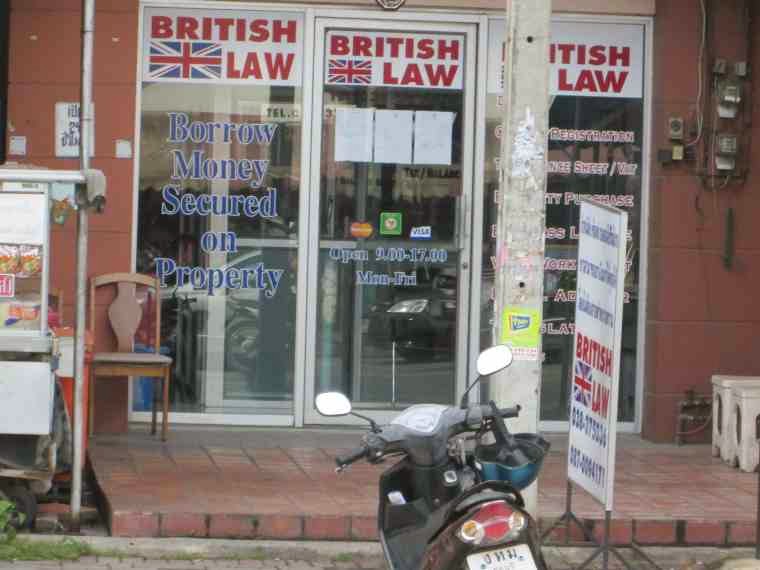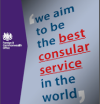The British Foreign and Commonwealth Office is to set up an ‘Access to Justice Unit’ to help the families of victims of murder and manslaughter overseas.
The move follows criticism from the families which included demonstrations in London and a review by the Parliamentary Foreign Affairs Committee. According to an FCO statement”
“Overall, the review found that many respondents praised the service provided by many of the caseworkers in London and the teams at our overseas Posts, in particular the high level of empathy that FCO Consular staff had shown.
“An inquiry conducted by the House of Commons Foreign Affairs Committee in 2014 also concluded that the FCO “should rightly be proud of its work”
But the FCO has conceded that adjustments needed to be made and the ‘Access to Justice Unit’ will be formed this year. The Parliamentary Committee was also critical.
The Rt Hon David Lidington MP, Foreign & Commonwealth Minister of State for Europe said:
Lidington “The death of a loved one through murder or manslaughter is one of the hardest ex periences any ofus may go through. The difficulty faced in these circumstances is only heightened when this happens abroad. ….
In 2014 we carried out a review into how we support bereaved families and friends after the murder or manslaughter of a British national abroad, including helping them get access to justice.
Our aim is for all those affected to receive excellent consular support throughout this t ime but werecognised that we were not always providing this level of service and wanted to consider why.
Hearing directly from families affected was vital to ensuring we were providing the best possible support.
The review was based on feedback from bereaved families and friends and those who work to help them, including our partners and our own consular staff. Many people praised the service provided by consular staff and I know from my close working with them how committed they are to providing the best support they can in a sympathetic way.
But every organisation must always look for areas for improvement and it had become apparent that the assistance we provide following murder and manslaughter cases was not always as supportive as we would have liked.”
Among the commitments being made are:
1. Foreign office case workers will fully brief other case workers when they take over a particular case.
2. Assistance will not depend on how much media attention a case gets.
3. FCO officials will consider going to meet the families in the UK ‘face to face’
4. The person most suited to deal with an individual case will deal with the families.
5. The FCO will review the process of how it draws up ‘Lawyers Lists’.
6. Will provide a consistent approach to all families, take into consideration the circumstance and follow emails up with phone calls.
7. Will ensure the unit has access to the FCO’s legal directorate.
8. Will focus on telling families what the FCO can do rather than focusing on what it cannot.
9. Develop even better relationships with organisations such as ‘Missing Abroad’ and ‘Victims Support.’
10. FCO will ask the AJU to complete the work on development of a new pro-bono legal panel to help families find free legal support, based on the model of the existing death penalty pro-bono panel.
11. The FCO will consider accompanying families more in court and monitor more of a trial or other extended legal processes.
While the report responds with the qualifiers ‘from available funds’ and ‘dependent on funds available’ the moves are a considerable move in the right direction. Families of victims are well used to being told what the FCO cannot do to help them and at times it must have seemed to them ‘nothing could be done’.
 |
| DO NOT BORROW MONEY FROM THIS COMPANY! |
They have reported massive communication problems with FCO officials and of course on this site we have highlighted how a fake lawyer and a lawyer struck off in the UK has made the British Embassy list, and other law firms to this day who have been without doubt working against the interests of British subjects remain on the Embassy list.
The interesting part is the ‘monitoring of cases’ – If that were to be done seriously in such places as Cambodia and Thailand they would perhaps get information that they did not want to hear which might compromise their stance on foreign courts.





Let's face it….there's a limit to how much Her Majesty's Government can do in these situations. The days of gunboat diplomacy are long gone. Sending Scotland yard to Koh Tao was pretty inconclusive.
Is British Law a Goudie company?
Yes. Gunboat Diplomacy is over. We knew that at Suez when our tactics were low-balled by America. We have not tried it since. Sending the Yard was cosmetic. But it did give the media (including AD) an opportunity to highlight what was going even though it was differed from the official Thai line. The Met and the FCO mucked up a good opportunity by their silly statement that the families agreed the Thai findings (the case had not been heard and the families were given selective titbits – helpful to Thailand but blatantly unfair)
That example alone gives no confidence to the "justifiably proud" tag the FCO is now giving to its own feeble efforts in representing justice and assistance to its own citizens.
I agree we are not as powerful as we were but we should be more principled. And for that to happen there has to be a sea change in recruitment into the diplomatic service. Cutting down on the "gin and tonic" allowance and – with the money thus saved – investing in monitoring better qualified personnel would be a positive start.
I hope we have the guts to make changes but I doubt it will happen.
Matt-Owens-Rees
I think the G and T allowance went. Or it at least went for journalists. I would usually be one of the last people to leave receptions for the press. It was usually wine (would have been cheaper with G and T.) But the last one I went to we actually had tea and cucumber sandwiches. It sort of signalled the end of an Empire for me – and the beginning of deteriorating press relations
Were the crusts cut off the cucumber sandwiches?
I was of course joking. There's room for hospitality at diplomatic functions; but provided that it does not detract from the real work of looking after UK citizens abroad in emergencies and serious situations.